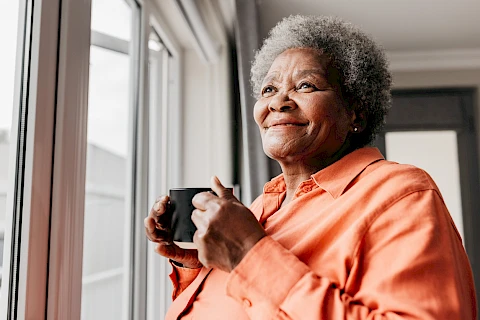
Proper hydration becomes increasingly vital as we age because our bodies lose water more easily, our sense of thirst diminishes, and dehydration can more severely impact organ function and cognitive health. Senior caregivers, whether family members or professional aides, are key in ensuring older adults stay hydrated. Learn why proper hydration is crucial for seniors and get practical tips to ensure they get enough fluids each day.
Why Hydration for Seniors Matters
As we age, our bodies undergo changes that can affect hydration levels. Seniors often experience a decreased sense of thirst and may not feel the need to drink as much water as they should. Certain medications or health conditions common among older adults can further complicate adequate hydration.
Staying well-hydrated brings a host of benefits for seniors:
- Cognitive Function: Proper hydration is essential for maintaining mental sharpness. Dehydration can lead to confusion, difficulty concentrating, and memory issues.
- Joint Health: Water is a lubricant for our joints, helping seniors remain active and reducing discomfort or inflammation.
- Digestion: Hydration aids digestion, helping prevent constipation and ensuring nutrients are efficiently absorbed by the body.
Recognizing Signs of Dehydration
Dehydration can sneak up quickly. You need to be able to recognize the warning signs early on. Common symptoms include dry mouth or skin, fatigue or feeling unusually tired, dizziness or lightheadedness, and dark-colored urine or infrequent urination. If left unchecked, dehydration can lead to serious complications such as urinary tract infections, kidney problems, and even an increased risk of falls. Recognizing the signs of dehydration early can help prevent these more severe issues.
Tips for Increasing Daily Water Intake
Setting achievable hydration goals and implementing a regular routine can ensure seniors receive enough fluids each day. Some effective strategies include encouraging the use of a simple chart or hydration app to track daily water intake, establishing a routine by associating fluid intake with certain daily activities like meals or taking medications, and using reminders or alarms to prompt regular water breaks throughout the day.
Creative Ways to Consume More Fluids
While drinking plain water is the most direct way to stay hydrated, there are plenty of creative alternatives to ensure seniors consume enough fluids. Incorporating hydrating foods into meals, such as cucumbers, oranges, and watermelon, can contribute to overall fluid intake. Offering herbal teas as a flavorful and comforting beverage option, served hot or cold, provides variety. Flavored waters infused with slices of fruit or herbs can be a refreshing alternative to plain water. Incorporating broths or soups into meals, especially during colder months, provides hydration and can be nutritious and comforting.
Supporting Hydrated, Healthy Living for Seniors
Staying hydrated is vital for seniors, impacting everything from cognitive function to joint and digestive health. Caregivers can play a crucial role in maintaining seniors' well-being by recognizing the signs of dehydration, setting goals, and exploring creative ways to increase fluid intake. For families in Aurora, Chagrin Falls, Chesterland, Hudson, and Ravenna, Senior Helpers of Portage / Geauga is here to offer personalized care solutions. Contact us today to learn how we can support you and your loved ones in achieving a healthy, hydrated lifestyle.